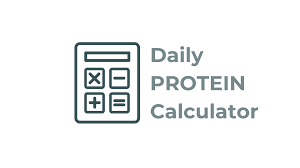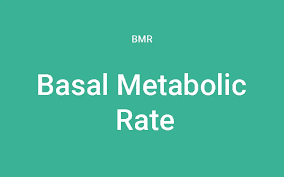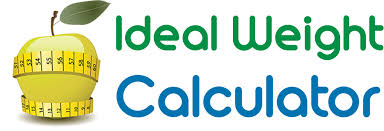To ensure that we are meeting our daily protein requirements, we can use helpful tools like the daily protein intake calculator and the online protein calculator. The daily protein intake calculator takes into account our individual needs based on age, gender, weight, and activity level.While the online protein calculator helps us determine the protein content of specific foods and meals. By utilizing these tools, we can make informed decisions about our protein intake and ensure that we are consuming enough protein for optimal health and wellbeing.
Protein Calculator
Protein intake for Stable:
Protein Intake Per Day to Maintain Current Weight: g
Calorie Needed Per Day to maintain Current Weight:
Protein intake Per Day for your desired Goal:
Protein Intake Per Day for your Desired Goal: g
Calorie Needed Per Day for Your Desired Goal:
Recommended protein intake Per Day:
| grams | kcal | |
|---|---|---|
| USDA Dietary Guideline (2020) 10-30% energy | ||
| WHO/FAO (2007)0.83 g/kg body weight |
[ez-toc]
What are proteins?
Proteins are the building blocks of life, playing a vital role in the functioning of living organisms. They are large, complex molecules that consist of amino acids, and they are essential for our body's growth, repair, and overall well-being. But what exactly are proteins, and why are they so important? In this article, we will explore the world of proteins, their structure, and the key roles they play in the biological processes that sustain life.
Understanding the Structure of Proteins :-
Amino Acids: The Building Blocks
Proteins are composed of long chains of amino acids, which are the fundamental building blocks of these complex molecules. There are 20 different amino acids, each with unique properties, that can be combined in various ways to create a diverse range of proteins.
The Peptide Bond: Linking Amino Acids
Amino acids are linked together by peptide bonds, which are formed through a chemical reaction between the amino group of one amino acid and the carboxyl group of another. The resulting structure is called a polypeptide chain, and one or more of these chains fold together to form a functional protein.
Protein Folding: The Key to Function
The specific sequence of amino acids determines the shape and structure of a protein, which in turn dictates its function. When a protein folds correctly, it assumes a unique three-dimensional shape, allowing it to perform its intended biological function. However, if a protein misfolds, it can become dysfunctional, leading to various health issues and diseases.
The Multifaceted Functions of Proteins
Enzymes: Biological Catalysts
Enzymes are proteins that act as catalysts, speeding up chemical reactions within cells. They play a critical role in metabolism, breaking down nutrients and converting them into energy or other essential molecules.
Structural Proteins: Providing Support
Structural proteins, such as collagen and keratin, provide strength and support to cells and tissues. They form the basis of hair, nails, skin, and connective tissues, maintaining their shape and integrity.
Transport Proteins: The Cellular Shuttles
Transport proteins, such as hemoglobin, facilitate the movement of molecules across cell membranes or within the bloodstream. They ensure that vital nutrients and oxygen reach cells, and waste products are removed efficiently.
Signaling Proteins: The Cellular Communicators
Signaling proteins, including hormones and receptors, are involved in cell communication and regulation. They transmit information between cells, coordinating biological processes and ensuring the proper functioning of the organism.
The Importance of Protein in Our Diet
Protein as a Macronutrient
Protein is one of the three macronutrients, alongside carbohydrates and fats, that our bodies need in significant amounts. Consuming adequate protein in our diet is crucial for maintaining muscle mass, repairing damaged tissues, and supporting various bodily functions.
Complete and Incomplete Proteins
Proteins are classified as complete or incomplete based on their amino acid profile. Complete proteins, such as those found in animal sources, contain all nine essential amino acids, while incomplete proteins, like those in plant sources, may be lacking one or more. It's essential to consume a variety of protein sources to ensure you're getting all the amino acids your body needs.
How much protein do I need daily? – recommended
Protein is an essential nutrient that plays a crucial role in our body's growth, repair, and maintenance. With its importance in numerous biological processes, the question of how much protein we need daily becomes critical. In this article, we will explore the recommended daily protein intake for various individuals, considering factors such as age, gender, activity level, and health status.
Understanding the Recommended Daily Protein Intake
General Guidelines for Protein Consumption
The Recommended Dietary Allowance (RDA) for protein varies depending on factors such as age, gender, and activity level. Generally, the RDA for protein is 0.8 grams per kilogram (g/kg) of body weight per day for adults. However, it's important to note that individual protein requirements may vary.
Protein Intake for Different Age Groups
- Infants and Children: Protein is essential for the growth and development of young children. The protein RDA for infants is approximately 1.5 g/kg per day, while children between 1-3 years need about 1.1 g/kg, and those aged 4-13 years require approximately 0.95 g/kg daily.
- Adolescents: During adolescence, protein requirements increase due to rapid growth and hormonal changes. The RDA for protein in teenagers is roughly 0.85 g/kg per day.
- Adults: For healthy adults, the RDA is 0.8 g/kg per day. However, older adults may benefit from a slightly higher protein intake of 1.0-1.2 g/kg daily to prevent age-related muscle loss.
Protein Needs Based on Lifestyle and Activity Level
Sedentary Individuals
For those living a sedentary lifestyle, the general RDA of 0.8 g/kg per day should suffice. Consuming an adequate amount of protein will help maintain muscle mass and support essential bodily functions.
Active Individuals and Athletes
Active individuals and athletes may require more protein to support muscle growth, recovery, and overall performance. Endurance athletes typically need 1.2-1.4 g/kg per day, while strength athletes may benefit from 1.6-2.0 g/kg daily.
Protein Intake for Special Populations
Pregnant and Breastfeeding Women
During pregnancy and breastfeeding, women require additional protein to support the growth and development of their baby. Pregnant women should aim for an additional 25 grams of protein per day, while breastfeeding women may need an extra 11-20 grams daily.
Vegetarians and Vegans
Vegetarians and vegans can meet their protein requirements by consuming a variety of plant-based protein sources, such as legumes, nuts, seeds, and whole grains. It's essential to consume a diverse range of plant proteins to ensure adequate intake of all essential amino acids.
Foods high in protein ?
Protein is an essential macronutrient that plays a crucial role in maintaining overall health, growth, and repair. Including protein-rich foods in your daily diet can help improve muscle mass, support the immune system, and promote satiety. In this article, we will delve into the top high-protein foods from both animal and plant sources, so you can make informed choices for a well-rounded, nutritious diet.
High-Protein Animal Sources
Lean Meats: Poultry and Red Meat
Lean meats are a great source of high-quality protein, with chicken and turkey being popular choices. Skinless chicken breast contains approximately 31 grams of protein per 100 grams, while turkey provides about 29 grams per 100 grams. Lean cuts of red meat, such as beef, lamb, and pork, also offer substantial protein content, typically ranging between 20-30 grams per 100 grams.
Seafood: Fish and Shellfish
Seafood is not only a rich source of protein but also offers essential omega-3 fatty acids. Examples of protein-packed fish include salmon (20-22 grams per 100 grams), tuna (23-27 grams per 100 grams), and cod (17-20 grams per 100 grams). Shellfish such as shrimp, crab, and mussels are also excellent protein sources, with shrimp providing around 24 grams of protein per 100 grams.
Dairy: Milk, Yogurt, and Cheese
Dairy products provide significant amounts of protein and other essential nutrients like calcium and vitamin D. Greek yogurt is particularly high in protein, offering approximately 10 grams per 100 grams. Other dairy products, such as milk and cottage cheese, contain roughly 3-4 grams and 11-14 grams of protein per 100 grams, respectively.
Eggs: Nature's Protein Powerhouse
Eggs are considered a complete protein source, containing all nine essential amino acids. One large egg provides about 6 grams of protein, making it an easy and versatile addition to your daily protein intake.
High-Protein Plant Sources
Legumes: Beans, Lentils, and Peas
Legumes are an excellent plant-based protein source, with beans, lentils, and peas offering a significant protein punch. Chickpeas, black beans, and kidney beans provide around 6-9 grams of protein per 100 grams, while lentils offer about 9 grams per 100 grams.
Nuts and Seeds: Snackable Protein
Nuts and seeds are nutrient-dense foods that pack a protein punch. Almonds, peanuts, and pistachios provide approximately 20-25 grams of protein per 100 grams, while seeds like chia, flax, and pumpkin seeds contain 15-20 grams of protein per 100 grams.
Whole Grains: The Protein-Packed Carb
Whole grains offer more than just carbohydrates – they also provide a decent amount of protein. Quinoa stands out as a complete protein source, offering around 14 grams of protein per 100 grams. Other whole grains, such as brown rice, barley, and bulgur, provide 2-4 grams of protein per 100 grams.
Plant-Based Protein Powders and Meat Alternatives
Soy-based products, such as tofu and tempeh, are popular plant-based protein sources, providing 8-19 grams of protein per 100 grams. Plant-based protein powders, like pea,
hemp, and brown rice protein, are also convenient options for those looking to boost their protein intake. Meat alternatives, such as seitan and various veggie burgers, can offer 20-30 grams of protein per 100 grams, making them excellent choices for vegetarians and vegans.
Amount of protein in common foods ?
Protein is an essential nutrient that is vital for our overall health and wellbeing. It plays a crucial role in building and repairing tissues, as well as producing enzymes, hormones, and other important molecules in the body. It is recommended that we consume a certain amount of protein each day to ensure our body functions optimally.
If you are looking to increase your protein intake or just want to know how much protein is in your favorite foods, you have come to the right place. In this article, we will explore the amount of protein in common foods and provide you with some tips on how to incorporate more protein into your diet.
Protein in Meat and Poultry:
Meat and poultry are excellent sources of protein, with beef and chicken being the most popular choices. A 3-ounce serving of cooked beef contains approximately 22 grams of protein, while a 3-ounce serving of cooked chicken contains around 26 grams of protein. Other popular meat and poultry choices such as pork and turkey also contain significant amounts of protein.
Protein in Fish and Seafood:
Fish and seafood are also excellent sources of protein, and they contain a variety of other nutrients such as omega-3 fatty acids. A 3-ounce serving of cooked salmon contains approximately 22 grams of protein, while a 3-ounce serving of cooked tuna contains around 25 grams of protein. Other popular seafood choices such as shrimp and crab also contain significant amounts of protein.
Protein in Dairy Products:
Dairy products such as milk, cheese, and yogurt are also excellent sources of protein. A cup of milk contains approximately 8 grams of protein, while a cup of Greek yogurt contains around 23 grams of protein. Cheese also contains a significant amount of protein, with 1 ounce of cheddar cheese containing approximately 7 grams of protein.
Protein in Plant-Based Foods:
If you are a vegetarian or vegan, there are plenty of plant-based protein sources that you can choose from. Legumes such as beans, lentils, and chickpeas are excellent sources of protein, with a cup of cooked lentils containing approximately 18 grams of protein. Nuts and seeds such as almonds and sunflower seeds also contain a significant amount of protein.
Incorporating More Protein Into Your Diet:
If you are looking to increase your protein intake, there are plenty of ways to do so. Try incorporating protein-rich foods into each meal, such as adding nuts and seeds to your breakfast cereal or having a chicken breast with your dinner. You can also try snacking on protein-rich foods such as Greek yogurt or hard-boiled eggs.
In conclusion, protein is an essential nutrient that plays a vital role in our overall health and wellbeing. Whether you are a meat-eater, vegetarian, or vegan, there are plenty of protein-rich foods that you can choose from to ensure that you are meeting your daily protein needs. By incorporating more protein into your diet, you can help to build and repair tissues, as well as produce important molecules that your body needs to function properly.
Proteins and weight loss ?
Protein is an essential macronutrient that plays a crucial role in our overall health and wellbeing. It is important for building and repairing tissues, producing hormones, enzymes, and other important molecules in the body. But did you know that protein can also help with weight loss? In this article, we will explore how protein can aid in weight loss and provide some tips on how to incorporate more protein into your diet.
How Protein Can Help With Weight Loss:
Protein is more satiating than carbohydrates and fat, which means that it can help you feel full and satisfied after a meal. This can lead to a decrease in overall food intake and may help to reduce calorie consumption throughout the day. Additionally, protein can help to preserve muscle mass during weight loss, which is important for maintaining a healthy metabolism.
Studies have shown that a higher protein diet can lead to greater weight loss than a lower protein diet. For example, a study published in the American Journal of Clinical Nutrition found that a high-protein diet led to greater weight loss and fat loss compared to a low-protein diet.
Tips for Incorporating More Protein Into Your Diet:
Choose Protein-Rich Foods: Incorporate protein-rich foods into each meal, such as lean meats, fish, eggs, beans, and nuts. A serving of lean meat such as chicken or turkey contains approximately 25 grams of protein, while a cup of cooked beans contains around 15 grams of protein.
Replace Carbohydrates with Protein: Swap out some of the carbohydrates in your meals for protein-rich foods. For example, replace a serving of pasta with a serving of grilled chicken, or have a Greek yogurt instead of a bagel for breakfast.
Snack on Protein: Snack on protein-rich foods such as hard-boiled eggs, Greek yogurt, or a handful of almonds. These snacks will help keep you feeling full and satisfied between meals.
Try Protein Supplements: Protein supplements such as whey protein powder or protein bars can be an easy and convenient way to increase your protein intake. Just be sure to choose high-quality supplements that are free from added sugars and other unnecessary ingredients.
In conclusion, protein can play an important role in weight loss by helping to increase feelings of fullness and preserve muscle mass during calorie restriction. By incorporating more protein-rich foods into your diet and making smart food choices, you can help support your weight loss goals while also maintaining good health and wellbeing.
Protein deficiency symptoms & Protein deficiency diseases ?
Protein is an essential nutrient that is crucial for the proper functioning of the human body. It is involved in a wide range of processes, including building and repairing tissues, producing hormones and enzymes, and maintaining a healthy immune system. However, not getting enough protein in your diet can lead to protein deficiency, which can cause a variety of symptoms and diseases. In this article, we will explore the symptoms and diseases associated with protein deficiency.
Symptoms of Protein Deficiency:
Protein deficiency can lead to a range of symptoms, including:
Fatigue and Weakness: Without enough protein, the body may not be able to produce enough energy, which can lead to feelings of fatigue and weakness.
Muscle Wasting: Protein is essential for building and repairing muscle tissue. A lack of protein in the diet can lead to muscle wasting and loss of strength.
Edema: Edema is a condition where excess fluid builds up in the body's tissues, causing swelling. Protein is important for maintaining fluid balance in the body, and a lack of protein can lead to edema.
Hair, Skin, and Nail Problems: Protein is necessary for the growth and repair of hair, skin, and nails. A deficiency in protein can lead to brittle nails, hair loss, and dry, flaky skin.
Poor Wound Healing: Protein is important for the production of collagen, which is necessary for wound healing. A lack of protein in the diet can lead to slow or poor wound healing.
Protein Deficiency Diseases:
Severe protein deficiency can lead to a range of diseases, including:
Kwashiorkor: Kwashiorkor is a severe form of protein deficiency that most commonly affects young children in developing countries. It can cause edema, severe malnutrition, and other complications.
Marasmus: Marasmus is a severe form of malnutrition that can occur due to a lack of protein and other nutrients. It can cause wasting of muscle tissue, weight loss, and other complications.
Protein-Energy Malnutrition (PEM): PEM is a condition that can occur due to a lack of protein and calories in the diet. It can cause stunted growth, weakened immune system, and other complications.
Chronic Liver Disease: Chronic liver disease can lead to a buildup of toxins in the body, which can cause a lack of appetite and lead to protein deficiency.
In conclusion, protein deficiency can lead to a range of symptoms and diseases, including fatigue, muscle wasting, edema, and poor wound healing. Severe protein deficiency can even lead to life-threatening conditions such as kwashiorkor and marasmus. If you are concerned about your protein intake or are experiencing any of the symptoms of protein deficiency, talk to your healthcare provider or a registered dietitian for advice on how to incorporate more protein into your diet.
Daily protein intake calculator
Protein is an essential nutrient that plays a vital role in building and repairing tissues, producing enzymes, hormones, and other important molecules in the body. It is recommended that we consume a certain amount of protein each day to ensure our body functions optimally. But how much protein do we need? That's where a daily protein intake calculator or an online protein calculator can come in handy.
What is a Daily Protein Intake Calculator?
A daily protein intake calculator is a tool that helps you determine how much protein you should be consuming each day based on your age, gender, weight, and activity level. It takes into account your individual needs and can help you make informed decisions about your protein intake.
How to Use a Daily Protein Intake Calculator:
Using a daily protein intake calculator is simple. First, input your age, gender, weight, and activity level into the calculator. The calculator will then generate a recommended daily protein intake based on your individual needs. From there, you can use this information to make informed decisions about your protein intake and ensure that you are meeting your daily requirements.

FAQ on Protein Intake
What is Protein Intake?
Protein intake refers to the amount of protein you consume as part of your daily diet. Proteins are essential macronutrients that play a crucial role in various bodily functions, including muscle repair, immune system support, and enzyme production.
Why is Protein Intake Important?
Protein intake is vital because proteins serve as the building blocks for tissues, muscles, and organs in your body. It's necessary for growth, repair, and overall health.
How do I determine my ideal Protein Intake?
Your ideal protein intake depends on factors like your age, gender, activity level, and health goals. Using a Protein Intake Calculator can help you estimate the daily protein requirements that suit your specific needs.
What are the primary sources of dietary protein?
Dietary protein sources include animal-based options like meat, poultry, fish, dairy, and eggs, as well as plant-based sources such as beans, lentils, tofu, nuts, and seeds.
Can consuming too much protein be harmful?
Excessive protein intake may strain the kidneys and lead to dehydration. It's important to balance protein intake with other nutrients in your diet and consult with a healthcare provider or dietitian if you have concerns.
Is protein intake linked to weight loss or muscle gain?
Yes, protein intake plays a role in both weight loss and muscle gain. A high-protein diet can promote satiety, helping with weight management, and it is crucial for muscle repair and growth.
Is there a recommended protein intake for everyone?
The recommended daily protein intake varies from person to person based on factors like age, activity level, and goals. Athletes and those aiming for muscle gain may require more protein than sedentary individuals.
Can protein intake affect dietary preferences, like vegetarian or vegan diets?
Yes, protein intake can influence dietary choices. Vegetarian and vegan diets can provide ample protein through plant-based sources like beans, lentils, tofu, and quinoa. It's essential to plan these diets carefully to ensure adequate protein intake.
Does protein intake affect bone health?
Protein intake is important for maintaining bone health, but excessive consumption of animal protein may lead to calcium loss. A well-balanced diet with adequate protein and calcium is crucial for overall bone health.
Are there specific diets that emphasize protein intake, like high-protein diets?
Yes, high-protein diets like the Atkins and Paleo diets emphasize protein intake while reducing carbohydrates. These diets can be effective for weight loss and muscle building, but they should be followed with care and balance.
In conclusion, protein is an essential nutrient that plays a crucial role in our overall health and wellbeing. Using a daily protein intake calculator can help you determine how much protein you should be consuming each day, while an online protein calculator can help you determine the protein content of specific foods and meals. By using these tools, you can make informed decisions about your protein intake and ensure that you are meeting your individual needs.





